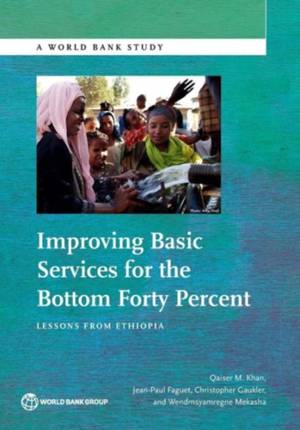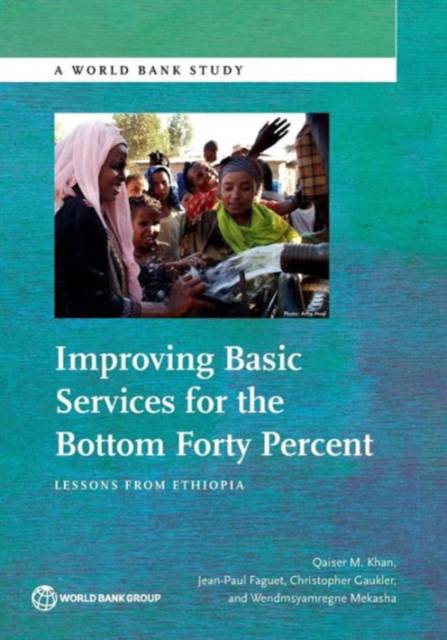
- Afhalen na 1 uur in een winkel met voorraad
- Gratis thuislevering in België vanaf € 30
- Ruim aanbod met 7 miljoen producten
- Afhalen na 1 uur in een winkel met voorraad
- Gratis thuislevering in België vanaf € 30
- Ruim aanbod met 7 miljoen producten
Zoeken
Improving Basic Services for the Bottom Forty Percent
Qaiser M Khan, Jean-Paul Faguet, Christopher Gaukler, Wendmsyamregne Mekasha
€ 42,45
+ 84 punten
Omschrijving
Ethiopia's model for delivering basic services appears to be succeeding and to confirm that services improve when service providers are more accountable to citizens. As discussed in the World Development Report 2004, accountability for delivering basic services can take an indirect, long route, in which citizens influence service providers through government, or a more direct, short route between service providers and citizens. When the long, indirect route of accountability is ineffective, service delivery can suffer, especially among poor or marginalized citizens who find it challenging to express their views to policymakers. In Ethiopia, the indirect route of accountability works well precisely because of decentralization. Service providers are strictly accountable to local governments for producing results, but in turn, the local authorities are held accountable by the regional and federal governments. A degree of local competition for power and influence helps to induce local authorities and service provides to remain open to feedback from citizens and take responsibility for results. The direct route of accountability has been reinforced by measures to strengthen financial transparency and accountability (educating citizens on local budgets and publicly providing information on budgets and service delivery goals), social accountability (improving citizens' opportunities to provide feedback directly to local administrators and service providers), and impartial procedures to redress grievances. Woreda-level (district) spending has been a very effective strategy for Ethiopia to attain its Millennium Development Goals (MDGs). Woreda health and education goes to pay for health extension workers (HEWs) and teachers. This study finds evidence that woreda-level spending in health and education is effective. Owing to the intervention of HEWs, the use of health services has increased, especially among the poorest quintiles. Finally, the effect of woreda-level spending on agricultural extension workers is associated with higher yields for major crops. Spending on agricultural extension workers increases the probability that farmers, regardless of the size of their plots, will use improved farming techniques. Education, health, and agriculture account for 97 percent of woreda spending. This is complemented by support for capacity building and citizen voice. Clearly, spending efficiency is improved through better capacity, more transparency, and greater accountability to citizens.
Specificaties
Betrokkenen
- Auteur(s):
- Uitgeverij:
Inhoud
- Aantal bladzijden:
- 136
- Taal:
- Engels
- Reeks:
Eigenschappen
- Productcode (EAN):
- 9781464803314
- Verschijningsdatum:
- 17/09/2014
- Uitvoering:
- Paperback
- Formaat:
- Trade paperback (VS)
- Afmetingen:
- 175 mm x 251 mm
- Gewicht:
- 317 g

Alleen bij Standaard Boekhandel
+ 84 punten op je klantenkaart van Standaard Boekhandel
Beoordelingen
We publiceren alleen reviews die voldoen aan de voorwaarden voor reviews. Bekijk onze voorwaarden voor reviews.







